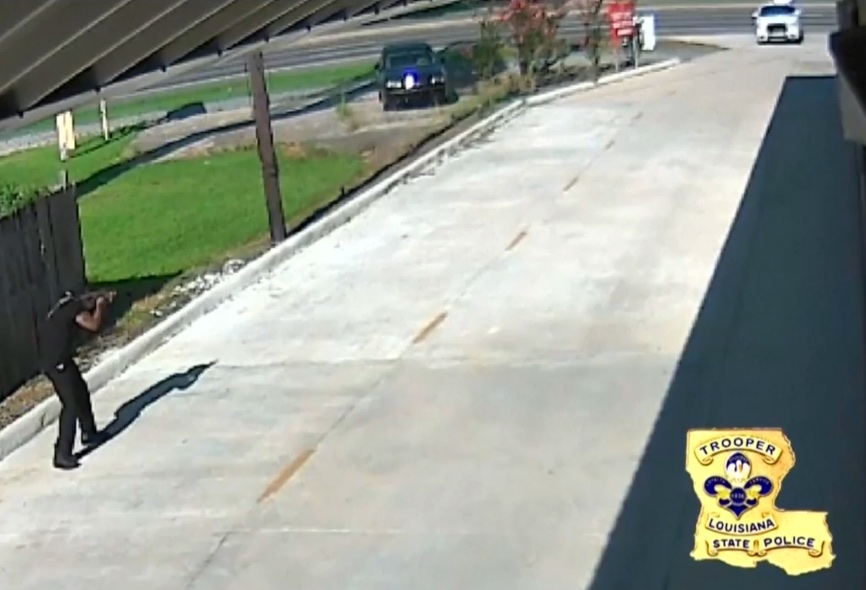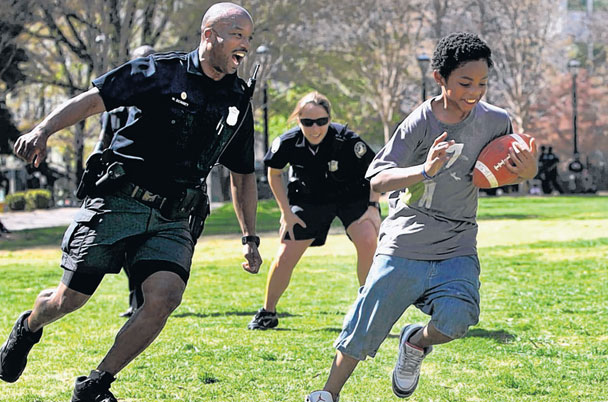
Nice, France, July 15. Valery Hache/AFP/Getty Images.
SYRACUSE, NEW YORK — By the time a troubled soul creates mass carnage driving a truck through a crowd; by the time a sniper takes aim at police officers; by the time a confrontation with police escalates, it’s already too late to avert a potentially disastrous outcome.
One may assert that “black lives matter,” that the police are overreacting, that the black victim did not deserve the death penalty for what was at most a minor infraction. Another could counter that failing to cooperate, with reasonable directions from a police officer, is a really bad idea.
Hardly anyone outside ISIS would defend the truck driver in Nice, France. Precious few would try to justify killing of random police officers doing their duty. Policing is a tough job. Officers are black, white, men, women. They have families. In many ways they are just like you. Would you shoot them dead, arbitrarily, out of some kind of twisted principle? Of course not. Yet somebody did, first in Dallas, then in Baton Rouge. The shooters are dead so they can’t talk, but safe to say they must have been enraged and deranged.
If you see a threat to yourself or your family, of course you would take action.
Someone knew and loved these guys. They had families, a father and a mother. Brothers? Sisters? Friends? Didn’t anyone know a loved one was amassing weapons and explosive grievances? How could they not know? How could they have let it happen?
In a democracy, government exists to serve and protect citizens, not to run their lives. Police, courts, legislatures, governors and presidents respond to the collective will of the people. Because voters can turn them out of office, they do not impose their will. Citizens of a democracy in turn have obligations: to obey the law, pay taxes, vote, be accountable. Some are not able to care for themselves and must be helped. Those who threaten the common security must be stopped.
But in a crisis, fulfilling those obligations is not enough. A citizen of a democracy needs to care for the common good as well. This means caring for your neighbors, your city, state and country. If you see a threat to yourself or your family, of course you would take action. But if the threat is to your neighbors, your community, I also expect you to act. You should expect the same of me.

Police release images that show Gavin Long, a U.S. Marine veteran, bypassing civilians as he ambushed and killed three Baton Rouge police officers.
The level of outrage and anger over police shootings of unarmed black men remains high, amid some consternation over the shootings of police officers who were doing nothing brutal or wrong. Is the answer really for the police chief to resign? The mayor? The governor? There are plenty of people to blame — everyone in authority, perhaps.
Or you could refrain from blaming the mayor or the governor, or police officers doing their tough jobs. Are you sure you know better than a trained, experienced law officer how to react when a confrontation suddenly escalates? Besides, in the electric moment of confrontation, it’s already too late in the story for anyone else to change the preordained ending — whether peaceful or tragic.
Based on what information has come to light on the three perpetrators, many people could have intervened to prevent these confrontations. The ones who knew best chose to do nothing, or nothing effective. They may be law-abiding, tax-paying, responsible, caring. For whatever reason, they failed in their duty to their fellow citizens — and to themselves.
It is a collective failure of our democracy, made up of many individual failures by blacks and whites, Christians and Muslims.
Could the shootings in Baton Route, Dallas, Orlando, Charleston, San Bernardino, Newtown — ach, there are so many! — have been prevented? Maybe. The solution is not to embrace a police state, but for citizens to do a better job policing themselves and their loved ones.
Amid the poignant or self-righteous oratory and the finger-pointing, consider this possibility: It is not the fault of the president or leaders at any level of government. It’s not the lack of laws, or the failure of police agencies. It is a collective failure of our democracy, made up of many individual failures by blacks and whites, Christians and Muslims. Don’t blame others for your own failure to “police” those nearest to you. Don’t expect government to succeed where you have failed or done nothing. If we as individuals do not take steps as citizens to prevent a troubled friend or relative from compromising our common security, then we are not worthy to live in a democracy — and surely, before long there will be precious little democracy left for us to enjoy together.

Jason Getz jgetz@ajc.com

FRED FISKE is an independent journalist and composer and spent his career in journalism, mostly writing editorials for The Post-Standard newspaper in Syracuse, New York. He majored in history and literature at Harvard University and received his masters from the Columbia Graduate School of Journalism. He grew up in a foreign service family, living in Bangladesh, Germany, Congo and Iceland.

Add new comment